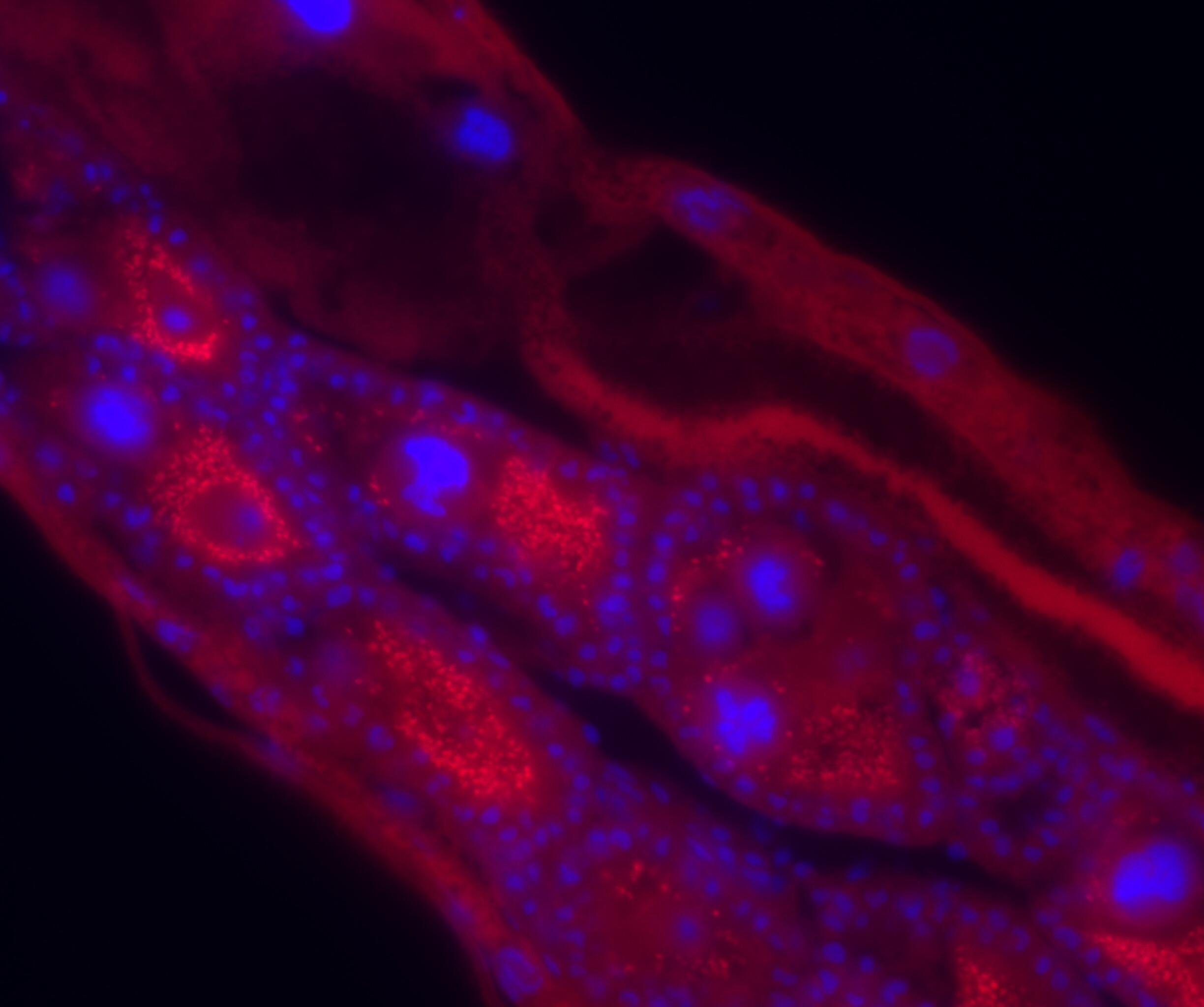
An international team of researchers, including several from Liverpool School of Tropical Medicine (LSTM) and the London School of Hygiene and Tropical Medicine (LSHTM), has provided robust evidence of high-density natural Wolbachia infections in Anopheles mosquito populations. The team’s findings have been published in the journal Current Biology.
One of the main outcomes showed that Wolbachia strains are not only found at high prevalence in wild Anopheles moucheti and Anopheles demeilloni mosquito populations, the vectors of the malaria parasite, but also that these are maternally transmitted to following generations.
Senior author of the study, LSTM’s Dr Grant Hughes, said: “In this study we have managed to provide the first concrete evidence for high density Wolbachia infections in Anopheles mosquitoes. This will open the possibility of using these strains in future mosquito control strategies for malaria in other Anopheles species.”
The research builds on initial work done by the researchers, including the study’s first author, LSHTM’s Dr Tom Walker. He said: “Wolbachia bacteria have been used in mosquito biocontrol strategies to reduce the transmission of arboviruses such as dengue in Aedes mosquitoes. It reduced dengue incidence by 77% in Wolbachia-treated communities. It is exciting to see that we now have the evidence that opens the possibility to do the same against malaria.”
Evidence to date whether the Wolbachia bacteria are genuine endosymbionts in Anopheles malaria vectors has been very limited. The researchers wanted to demonstrate Wolbachia infections in these mosquitoes using techniques other thanPolymerase Chain Reaction (PCR). Using fluorescent in situ hybridization, heavy Wolbachia infections were seen in Anopheles ovaries confirming their presence in the mosquitoes.
Genome sequencing of these Wolbachia strains obtained genome depths and coverages comparable to other insects known be infected by Wolbachia, providing further compelling evidence for the infection. These sequencing data also showed these strains possessed genes which are known to enable the bacteria to spread through host populations, which is critical if Wolbachia is to be used for control approaches.
The research determined the prevalence, density, and genetic diversity, of Wolbachia strains in geographically diverse mosquito populations of Cameroon, Kenya and the Democratic Republic of Congo (DRC) and that these strains dominated the mosquito microbiome and are maternally inherited. These are features of Wolbachia infections in other insects.
The study also showed that there is limited evidence for stable native Wolbachia infections in the Anopheles gambiae complex, meaning these medically important vectors are an open niche for artificial infections.
As published April 14, 2021 in Current Biology – “Stable high-density and maternally inherited Wolbachia infections in Anopheles moucheti and Anopheles demeilloni mosquitoes”. https://www.cell.com/current-biology/fulltext/S0960-9822(21)00429-2